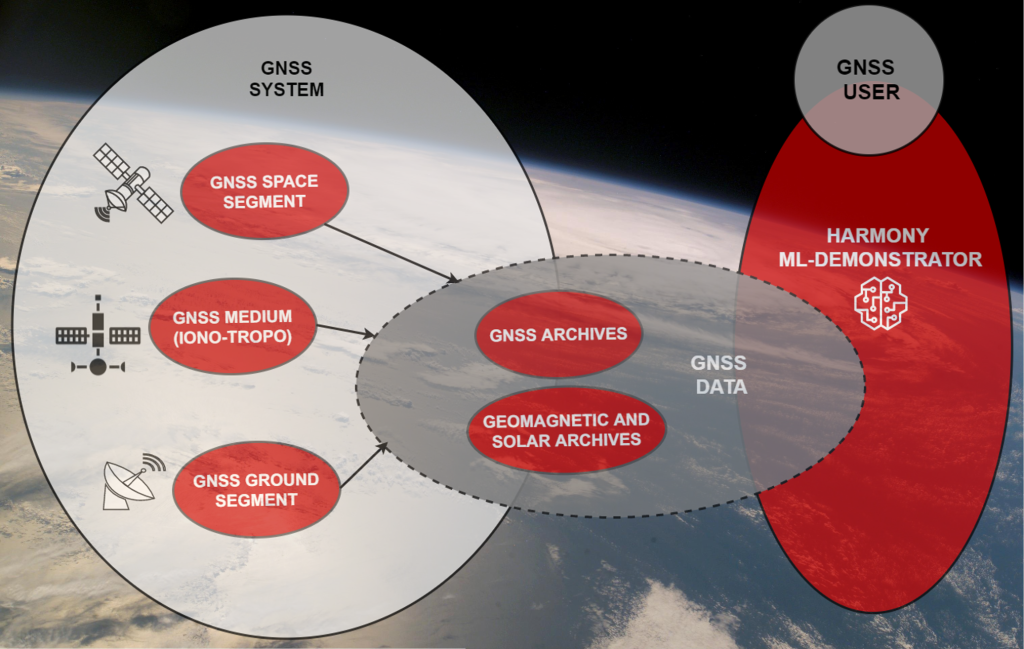How machine learning can help model segments of a GNSS system
Start date: 26/05/2023 10:30
End date: 26/05/2023 12:00
Register for the Final Presentation of the NAVISP EL1 035 ter Project "Machine Learning Techniques to model GNSS"
Within the EL1 035ter project, GMV has investigated how Machine Learning techniques could be applied to investigate and demonstrate the use Machine Learning in the GNSS context. Specifically, this study has focused into modelling use cases that take advantage of ML technologies. Two use cases have been chosen:
- Modelling of the ionospheric behaviour by means of forecasting STEC (IONO use case).
- Orbit and satellite clock bias corrections (IGS use case)
The evaluation of the models was performed by comparing the forecasting accuracy of the models against previously known data. For the IONO use case, the validation was done against the 24th solar cycle, while for the orbit and satellite clock bias correction the verification of the models was compared against data obtained in the years 2014 – 2017. For the latter, aspects such as the Solar pressure and Solar gravitational effects were also taken into consideration towards the creation of a complete Machine Learning model.
The performance evaluation was done by comparing the developed ML models against classical, broadly used models such as NeQuick, Klobuchar or IONEX in the IONO use case and IGS final products and CODE data in the IGS use case.
EL1-035 "Machine Learning to model GNSS Systems" was funded by NAVISP Element 1, which is dedicated to technology innovation of the European industry in the wide PNT sector.

